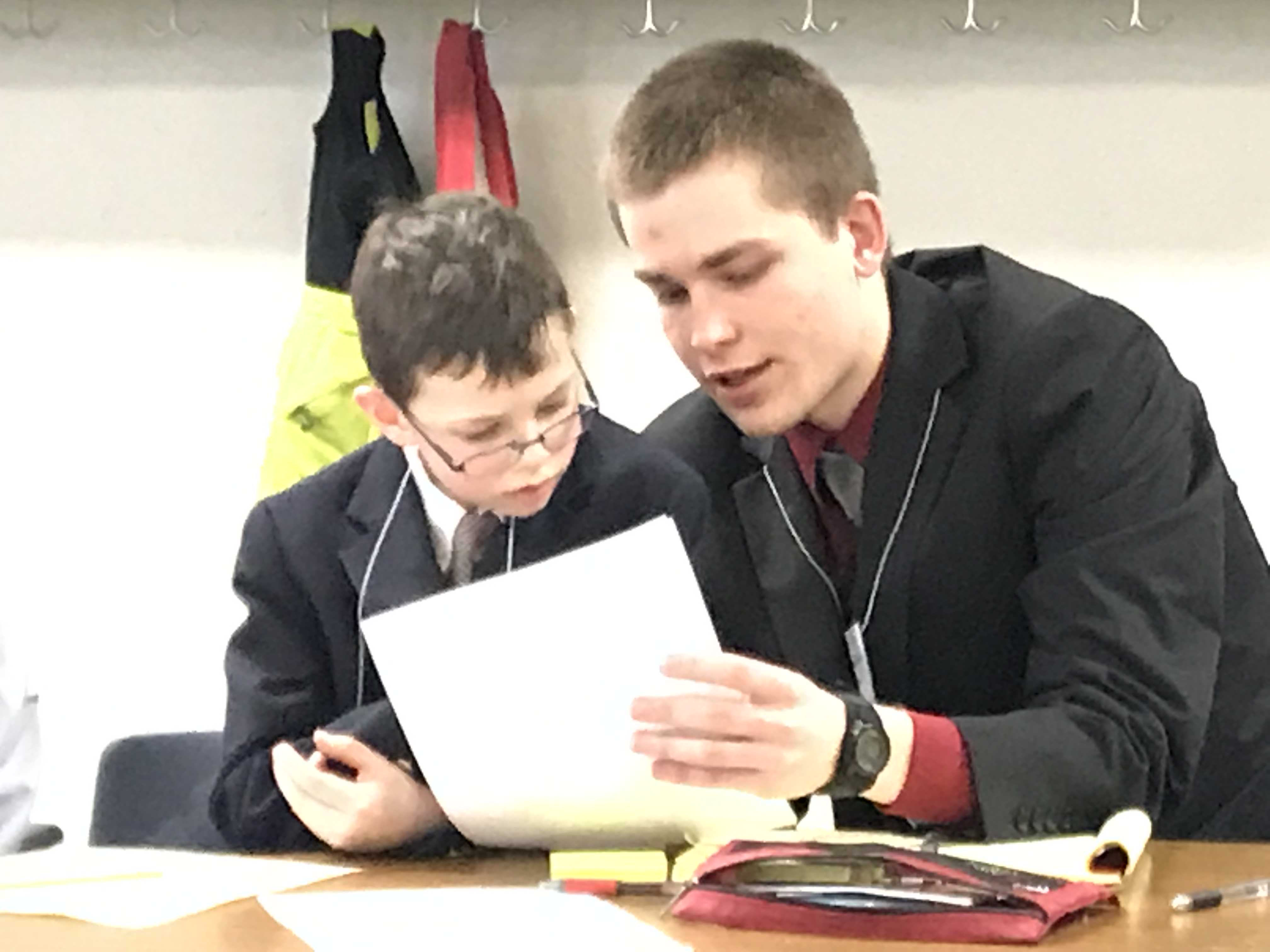
We are so blessed to have Amy Eichholz as part of the Lasting Impact! Team! She has been teaching Beginner Debate for years, and has seen the benefits through her own children, as well as the numerous students who have had her as a coach. We are excited to offer Debate Readiness to our online community. For more information on the class click HERE or go to the SHOP on our site, OR keep reading to hear Amy’s heart on preparing young debaters…
Each of my children began his or her team policy debate journey as an excited/ slightly terrified twelve or thirteen year old, armed with an abundance of enthusiasm and naive confidence. They wheeled the big black debate box into the room and tried to recall all the knowledge of
debate mechanics and the year’s resolution that their coach could pack into a short fall semester. They remembered when it was their turn to cross examine the opposing team, and that the 1NR comes after the 1NC, not the 1AR, but to tell the truth, their three minute constructive speeches and two minute rebuttals highlighted the challenge that all novice debate coaches face.
They knew what to do, but they didn’t have enough life experience or knowledge of logic, government or economics to argue effectively for or against a policy. Their knowledge of economics was limited to the money they made babysitting or mowing lawns, and their understanding of the philosophies of government came from an old Adventures in Odyssey
series about a place called Kidsboro.
As a novice debate coach gearing up for another season, I’m preparing for the annual battle against the clock with my young students, as I try to plan how much I can pack into (hopefully) twelve weeks of classes without completely overwhelming my students. We will explore the
new language called debate with mysterious terms like solvency and inherency, learn speech orders, and all the debate mechanics we can. We will take a deep dive into this year’s debate resolution and learn how to research cases and find evidence. We’ll do our best to craft
meaningful policies and arguments about that resolution. But inevitably I will fall short of my lofty goal of also expanding their understandings of logic, economics, and government because we will simply run out of time.
In the last few years, two amazing debate moms in our local club, Nancy Chu and Rachel Kostrzewa, have partnered together to teach an action-packed, fun, junior debate course. And each year, in addition to playing legendary debate games, they focus on an aspect of government or economics to help build a foundation in these areas. I see first-hand the fruit of their labor from the very first novice debate class. Not only are the junior debate alumni enthusiastic participants in class, they apply their knowledge of say, the Constitution, gained in junior debate to their arguments from the first class. I am grateful for this partnership in our students’ learning and growth and want to help students who may not have had the opportunity to be part of the junior debate class to reap the benefits of some concentrated study of logic, economics, and government. We use the very readable Uncle Eric books about economics and government and that veritable powerhouse of logic, Calvin and Hobbes, among other tools, to explore these topics in a format friendly to eleven to fourteen-year olds.
Learning logic helps debaters identify and refute logical fallacies and learn to craft arguments that hopefully avoid those fallacies. In the real world, it helps them reason soundly and discern truth in the barrage of the information/social media age. Understanding the foundations of the
US government helps students argue for or against a team’s proposed policy more authoritatively. It also helps them evaluate real world policies and political platforms with a critical eye, rather than blindly accept the popular political whims of the day. Finally, the study of economics helps students determine if a team’s policy or a politician’s plan is feasible or
practical in the real world and weigh it against the costs and unintended financial consequences. On a podcast recently, I heard an economic analyst give his report on the stock market and then explain the biblical foundation for his economic philosophy. He was using economics to promote a biblical world view in the marketplace using his training in the
field of economics. It reminded me of the real world value of debate and why we invest so much time and energy in helping our students learn this valuable skill. It is my hope that debate readiness is one of the tools to help students learn to debate with excellence and, more importantly, interact with our culture and influence it for truth, beauty, goodness and godliness.
Join Amy and students from across the country on a online, weekly journey to get ready for debate. To sign up for Debate Readiness click HERE. Lasting Impact! offers a variety of online classes and clubs (even some for Junior Competitors!), check out the SHOP for a complete list. All classes and clubs begin after Labor Day, so sign up now!